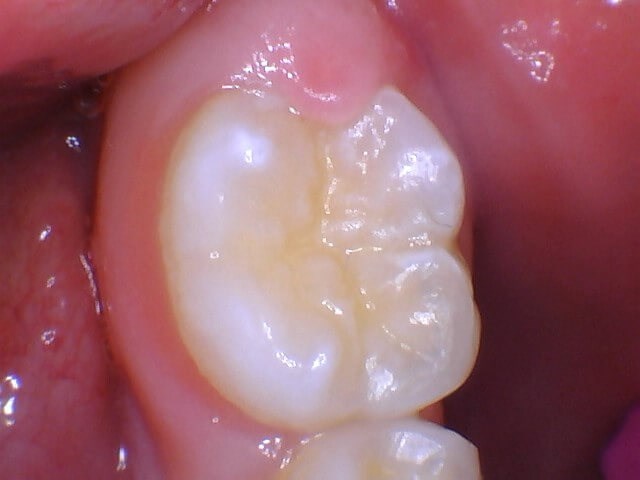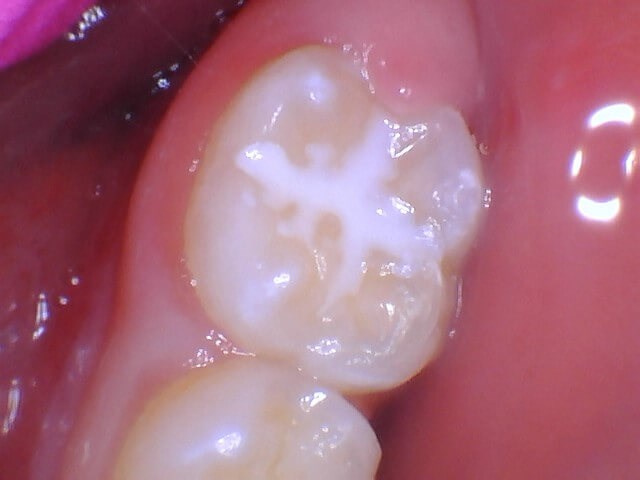Dental Sealants
At Smiles of Chevy Chase, patients can expect a gentle, thorough application of sealants in a comfortable, relaxed environment, ensuring long-lasting protection and a bright, healthy smile.
What Are Dental Sealants?
Dental sealants are thin, plastic-like coatings for your back teeth. By painting these coatings onto the surfaces of these teeth, your dentist creates a protective barrier against unhealthy bacteria. This barrier will help prevent the build-up of plaque and tartar to keep your teeth healthy.


Overview
Dental sealants are a protective coating applied to the chewing surfaces of back teeth to help prevent cavities and tooth decay by sealing out food and bacteria. The best treatment for tooth decay is prevention, which is why the Smiles of Chevy Chase team offers dental sealants. Keep reading to learn more about the many benefits of this simple, non-invasive measure against tooth decay from our skilled Chevy Chase general dentist.


Benefits of Dental Sealants
- Effective Cavity Protection: A study conducted by the Centers for Disease Control found that dental sealants prevent over 80 percent of cavities for two years.
- Quick and Non-Invasive: Getting dental sealants is a quick and painless process that only takes two to three minutes per tooth.
- Affordable: Dental sealants are a relatively affordable way to prevent costly damage to your smile.
- Lasting Protection: Dental sealants can last for two years or longer with proper oral hygiene and regular dental exams.
- Prevents Staining: Dental sealants help protect your teeth from staining, keeping your teeth whiter for longer.
- Combats Enamel Thinning: Dental sealants help prevent your enamel from thinning, which helps your teeth look healthier and stay stronger.
- Preserves Your Smiles’ Appearance: Dental sealants blend in with your natural teeth so they won’t impact the look of your smile.

Best Candidates For Dental Sealants
Ideal candidates for dental sealants include anyone prone to cavities or oral diseases due to genetics or poor oral hygiene. Most often, sealants are recommended for young children and teenagers who may have difficulty maintaining regular brushing and flossing habits at home.
If you already have deep cavities, you may need tooth-colored fillings instead. Your Chevy Chase general dentist will go over your options with you during your initial consultation.
What To Expect From Dental Sealants
/1
Initial Consultation
Your dentist will thoroughly examine your mouth, take X-rays, review your medical history, and ask you about your smile goals. This information will help her determine if dental sealants are right for you.
/2
Placing Dental Sealants
If you’ve been approved for dental sealants, our hygienist will clean and polish your teeth to remove plaque, bacteria, and tartar. Then, the dentist will apply the sealant with a small brush and set it with a special light. After the application, she’ll ensure that the sealant has settled correctly.
Call Smiles of Chevy Chase About Simple, Painless Cavity Prevention

Frequently Asked Questions
How long do dental sealants last?
Dental sealants can last several years. To help your sealants last as long as possible you’ll need to follow a few instructions:
- Visit your dentist at least once every six months for touch-ups
- Brush twice a day, floss before bed, and rinse between meals
- Avoid putting pressure on your teeth by eating sticky and hard foods
- Don’t bite down on non-food items
- Limit acidic foods and drinks like coffee, citrus fruits, and alcohol
- Wear a nightguard if you experience bruxism (teeth grinding)
Are dental sealants safe?
Dental sealants are a safe and highly effective way to keep your smile healthy and beautiful. The medical grade resin used for dental sealants makes them safe to have long-term. Due to their low costs and their ability to help prevent cavities, staining, and enamel thinning, most dentists recommend sealants to patients of all ages.
Can adults get dental sealants?
Adults can qualify for dental sealants, but sometimes their oral health needs more intensive care. Teeth that need to be treated for issues such as cavities, deep cracks, or infection should be taken care of before sealants are applied. Your dentist will give you your options for treatment during your initial consultation.

